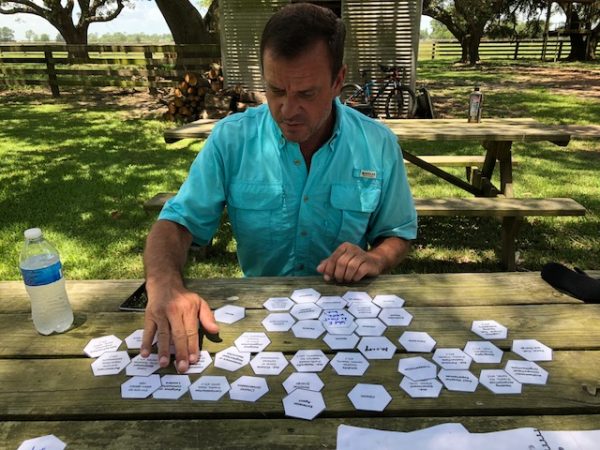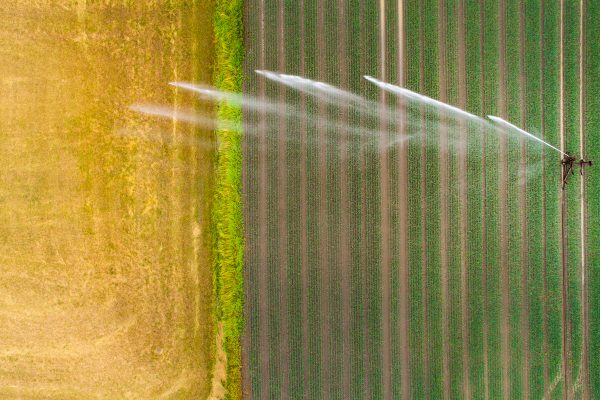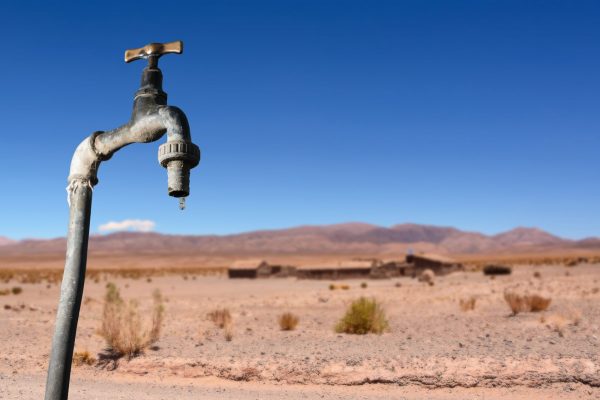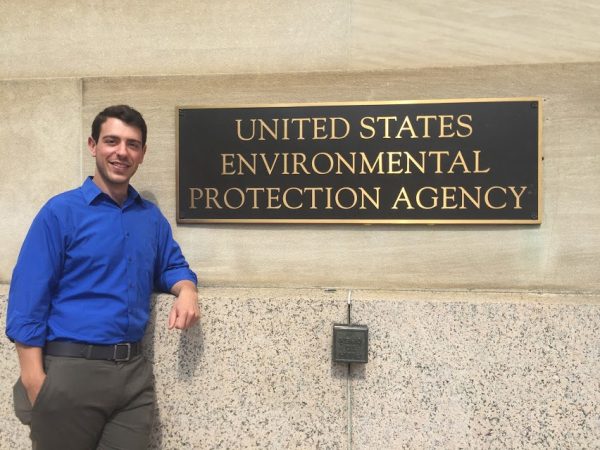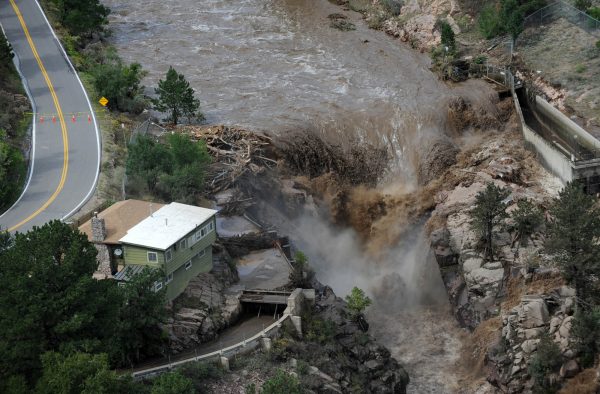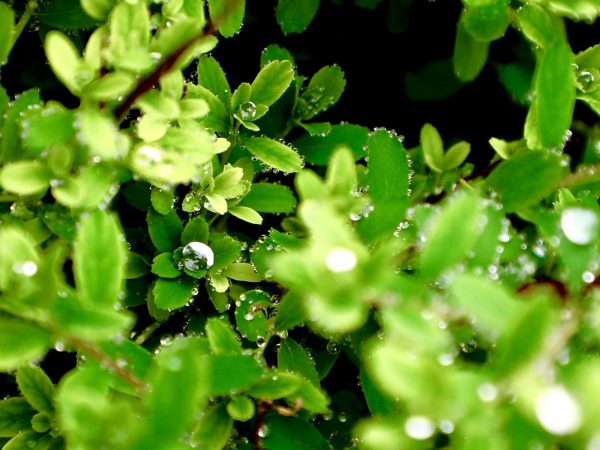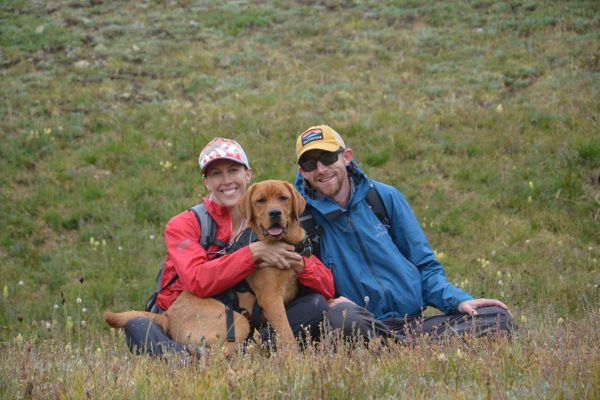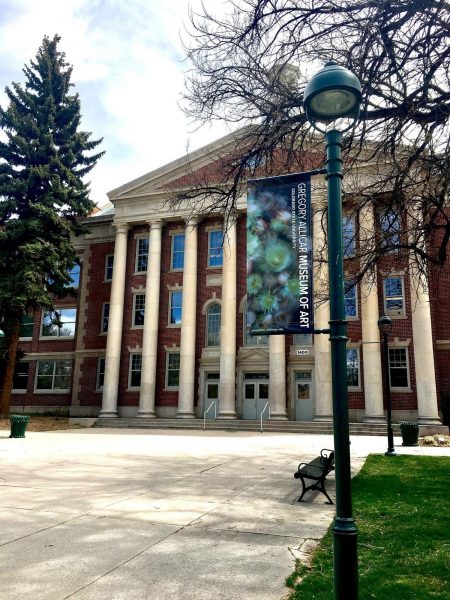Winter 2018
Lenses of the Liberal Arts: Water
How our disciplines in the arts, humanities, and social sciences help us identify, analyze, and understand our world from a variety of perspectives.
Scroll down to see this issue's featured stories
Should I Stay or Should I Go? How people make decisions about disasters
When a disaster threatens, how do people decide whether to stay or to evacuate? To rebuild or relocate? How to restore their lives? Prof. Kate Browne’s work with survivors of Hurricane Harvey explores the decisions people make using a novel “assemblage” technique.
Lenses of the Liberal Arts: How we identify, analyze, and understand our world
How we understand water – its flow, its place and purpose, how it forms our identities, how it’s used and routed, how it destroys – and our relationship to it provides us insight into politics, economics, art, ourselves, and life itself. In this issue, we apply the lenses of the liberal arts to this most important resource.
Connected by Water: Semester at Sea illuminates our cross-cultural connections
Eleanor Moseman, associate professor of art history, studies the role women artists play as cultural producers. Her experience teaching on Semester at Sea brought a global comparative element to her courses Intro to Visual Art and Women in Art History, encouraging students to compare art in Spain, Japan, and Ghana.
Unusual Spanish connection brings together the humanities and sciences
Languages, Literatures and Cultures
A mutual friend, a beer, and a river — all in Spain, 5,000 miles from Colorado — have brought together two CSU faculty members from very different fields, as well as a couple of their students. Jonathan Carlyon, who teaches Spanish language, literature, and culture, and Steve Fassnacht, who teaches watershed science, have come together to provide a comprehensive look at the history and environment of the Camino de Santiago in Spain.
Sociologists ensure water equity flows near and far
Water equity is one of the 21st century’s key environmental justice issues. Sociologists work directly with water stakeholders, including farmers, engineers, urban developers, conservationists, lawmakers, and more to bridge communication gaps and ensure that legal, economic and social barriers are considered when policies and collaborative efforts are designed and implemented.
Water Wise: working across disciplines to solve problems of scarcity and contamination
From scarcity and drought, to equitable distribution across a growing population, to contamination from mining and other extractive industries, water in Colorado is the nexus for interdisciplinary research that fulfills CSU’s land grant mission.
Working toward water resource sustainability
Jake Adler, political science graduate, is at a fellowship with the Oak Ridge Institute for Science and Education at the EPA’s Office of Water working on issues of resource recovery, water monitoring, innovation, and reuse. Adler’s team’s research and work focuses on the whole water cycle and follows the One Water concept, thinking more broadly about the entire water cycle, in a collaborative manner, to work toward water resource sustainability.
The Demand For Water: policy reform and new technologies offer solutions
Renowned CSU economist Edward Barbier has a few ideas about the world’s increasingly serious water crisis. He says we have mismanaged our freshwater supplies by not charging enough for the natural resource and by sticking to an antiquated system of determining water rights. By looking at governance, policy reform, and new technologies we could protect our freshwater ecosystems and secure sufficient water for our world’s growing population.
The Meaning of Water: Identity, Place, and Purpose
Water lies at the heart of what it means to be human and what it means to flourish in our own place in the world. From a philosophical and ethical perspective, our particular understandings and interpretations of water reveal our sense of identity (the who), our sense of place (the where), and our meaning and purpose in the world (the why).
Sharing the Lessons Learned during the 2013 Colorado Flood
What can a historian do in response to life-threatening flooding like we’ve seen in Northern Colorado? Quite a lot it turns out. By documenting the communication, cooperation, and activity of disaster responders, historians capture the knowledge and information-sharing process that is so crucial to future response and recovery.
Slow, Still, Defiant: A poet meditates on water
In his latest book of poetry, Walks Along the Ditch, Bill Tremblay (CSU Professor of English, 1973 to 2006) introduces us to the flow that has long provided a cadence to his life: poetry, water, t’ai chi. The poems walk us along the ditch with the poet: the water, the familiar Mountain West geography, the “smell of money” from Greeley, the morning song of meadowlarks.
Water takes center stage in CSU Theatre’s latest production
School of Music, Theatre, and Dance
Big Love by Charles Mee has been called a big, beautiful, fantastic mess. Just like love, or perhaps like water. Water plays a major role in the on-stage dynamic, and the key to success is collaboration between the multiple theatrical shops. From the set designer to the technical director, all members of CSU’s Theatre worked together to make the production a success (and not a mess!)
Walking Up Stream: sleeping rough on the banks of the South Platte River
Chris Conner (M.A. ’11) has spent the majority of his career working to improve the lives of those experiencing homelessness in Denver. Inspired by the rhetorical traditions of his communication studies degree, Conner recently helped one man share an unlikely story of living and sleeping rough on the banks of the South Platte River.
Water lessons from the Syrian Civil War
For millenia, water scarcity and security has caused both wars and international cooperation. But with increasing populations, precipitation changes due to climate change, and unbalanced resource allocation, water issues are becoming more and more relevant to global stability. Case in point: the Syrian civil war. CSU alumnus David Bonomo provides a look into the issue.
Water as Science and Art
Journalism and Media Communication
Water plays many roles in our lives: from nourishment to relaxation to destruction. Its captivating qualities provide fodder for painters and photographers.
Irrigation, Recreation, and Conservation: Water’s importance in life
Interdisciplinary Liberal Arts
Zak Danielson has always loved water: growing up on a farm, fishing in the Laramie River, or working with water at a brewery and in gardening. As a student at CSU, he has used an interdisciplinary approach to study sustainability so that he can continue his work with water conservation efforts.
A Response for the Decades: a disaster response plan for the museum
The Gregory Allicar Museum of Art
As part of their national accreditation, the Gregory Allicar Museum of Art prepared an emergency response plan, identifying which pieces they would ‘rescue’, in case there is a flood or other natural disaster affecting the collection. “As a land-grant institution, our collection is part of the public trust and we hold it and care for it for everyone. We have to protect the collections from all forms of water for ten more years and beyond.”
Not Your Everyday Priest, Not Your Everyday Gift
Fr. Don Willette is not your everyday Catholic priest. So, appropriately, his gift to create an endowed faculty position at Colorado State University is anything but every day. The Father Don Willette Professorship for Theological Studies will encourage students, faculty, and staff at CSU to engage in academic pursuits and open conversations about the history and theological traditions of Christianity.
Alumni Impact – Winter 2018
From fighting crime on the streets of Houston to telling refugee stories in Iraq, these Liberal Arts alumni used their degrees to make a real impact on the lives of people around the world and on the lives of CSU students. Read more about what a degree in the liberal arts and a passion for service can really do.
College of Liberal Arts Winter 2018 News
Recently published books from faculty, new interdisciplinary approaches to learning and teaching, and awards, events, and other goings-on at the College of Liberal Arts.

